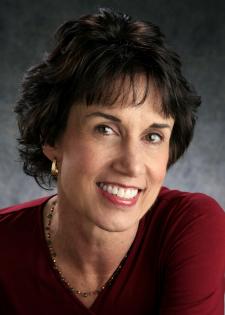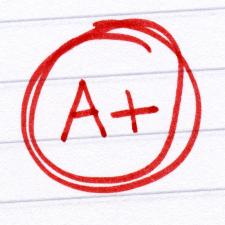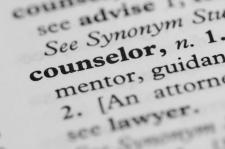Thank you to Wolcott School
Posted on Thu, 11/14/2013 - 11:55




Have a question about a gap year? Scholarships? Guidebooks for your college search? Undocumented students? Learning differences? Don't forget to take advantage of our extensive listing of Resources! You'll find books and websites for every step and aspect of the college application process under Resources when you click on the Book tab in the header of the website. Check back regularly! We always updating our listings!

One of the most important steps in the college application process is researching the colleges. Last week, we brought you our list of objective guidebooks and websites -- the comprehensive catalogs that provide at-a-glance overviews for colleges and universities with facts and figures on variables such as location, cost, test scores, academics, athletics and financial aid. These are great starting points for your research.
This week, we have the subjective guidebooks and websites. These subjective resources can also provide basic facts about colleges and universities, such as acceptance rates and enrollment. But they also "review" the schools -- offering fact and opinion about the physical campus, student body, academics and other aspects of campus life. Their anecdotal nature makes them very entertaining, but pay attention to how they gather their information and from whom.
All of these guidebooks are usually available in bookstores, libraries and the office of your high school college counselor. Websites are available to everyone free of charge.
SUBJECTIVE REFERENCE GUIDES
Books

A recent New York Times article on colleges' use of social media in the application process -- They Loved Your G.P.A. Then They Saw Your Tweets -- has generated a lot of hysterical headlines in the last few days.

Educational psychologist Jane McClure, who is widely respected for her work with students with learning disabilities, returns this month with advice on the college application process for students with a learning difference or Attention Deficit/Hyperactivity Disorder. For students with such special circumstances, making the right match with a college is particularly important. Read on for her excellent recommendations on the college search, visits, testing and making the right match.
Applying to college can seem complicated for all students, but if you have a learning disability or Attention Deficit/Hyperactivity Disorder, it can appear to be downright daunting. However, with careful planning and an understanding of how the process works for LD and ADHD students, it is manageable and should lead to a successful transition from high school to college. Here are some tips for how to proceed:

Seniors, this week we want to reiterate (SAT word!) something that we hope you will take to heart.
Take the college application itself seriously! Filling out the Common Application correctly or submitting a recommendation letter on time tells an admission officer a lot about you as a candidate. As well, the essay is your unique opportunity in the application to tell the college in your own words who you are -- think of it as standing in front of the admission committee and telling them who you are and what you want.
Treat the application as your first college assignment. It should represent your very best work. Give it plenty of time and your keenest attention. Do not underestimate what you are telling a college at every point in the process. They are paying attention.
Psychologist and counselor Jeanette Spires joins us again this month to talk about the essay, why it's a good idea to avoid too much "help" from parents, and what it means to show a college what matters to you.
What feels most out of control in the college admission world? The winner may be the essay process. There is plenty of research indicating that the rigor of high school classes and the grades earned by students are the best predictors of success. But essays do not lend themselves to statistical study. Years ago when I began as a college counselor, there was something of an honor code about essays for competitive colleges. Today, checking search engines leads you to sites offering to take care of that onerous task for you. "Harvard writers!" Now why would a high school student want an essay written by a college graduate? Ding-dong! The admissions reader isn't stupid.
For many parents and students, the most-lucrative path seems obvious: be practical. The public and private sectors are urging kids to abandon the liberal arts, and study fields where the job market is hot right now.
Dr. Peter Cappelli, George W. Taylor Professor of Management and Director of the Center for Human Resources at the Wharton School and Professor of Education, has some very good, "practical" advice for students and their families in a recent Wall Street Journal article -- Why Focusing Too Narrowly in College Could Backfire.
Here's an excerpt:
Schools, in turn, are responding with new, specialized courses that promise to teach skills that students will need on the job. A degree in hospital financing? Casino management? Pharmaceutical marketing?
Little wonder that business majors outnumber liberal-arts majors in the U.S. by two-to-one, and the trend is for even more focused programs targeted to niches in the labor market.

Guidebooks and websites are great starting points for an initial college search. Objective guidebooks and websites are comprehensive catalogs that provide at-a-glance overviews for colleges and universities -- facts and figures on variables such as location, cost, test scores, academics, athletics and financial aid. The guidebooks are available in bookstores, libraries and the office of your high school college counselor. Websites are available to everyone free of charge.
Here are the objective guidebooks and websites we recommend:
Books
College Handbook, The College Board
Four Year Colleges, Peterson’s
Four Year College Admissions Data: Index of Majors and Sports available fromWintergreen Orchard House
Websites

October is the cruelest month for high school college counselors, besieged on all sides with seniors intent on applications and juniors beginning their college search and testing -- as well as issues with the Common App this year. So we give counselors a pass at this time of year. Instead of our Counselor of the Month feature, we bring you a round-up of best advice from the counselors who have graced our website with their guidance and wisdom in the past year. Read on to learn their best advice for students and parents, recommendations for financial aid, guidance on the college search and mistakes to avoid. One of our personal favorite sound bites? Niles West High School's Dan Gin who advises students, "Have fun… Everything will work out in the end." Next year at this time, you'll all see how true this is. In the meantime, take advantage of this advice from the experts on the college counseling side of the desk.
The College Search
Laura Stewart, Ensworth School, Nashville, Tennessee
How do you encourage your students to broaden their college search and look beyond the four or five schools that they know best?